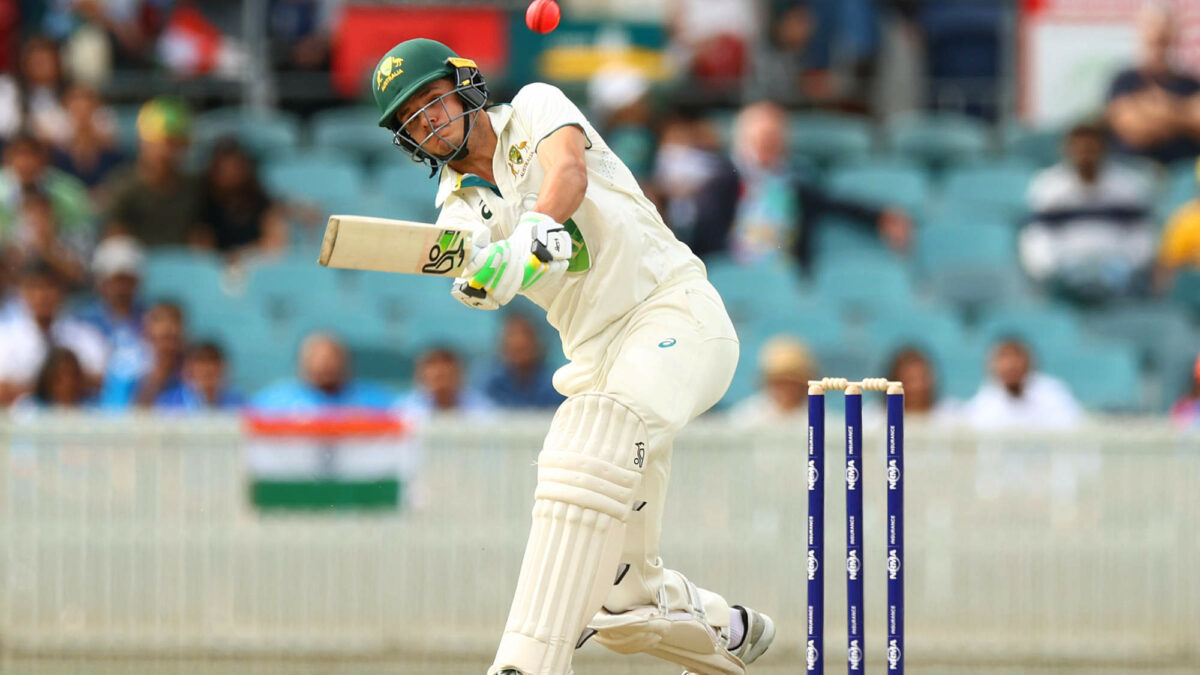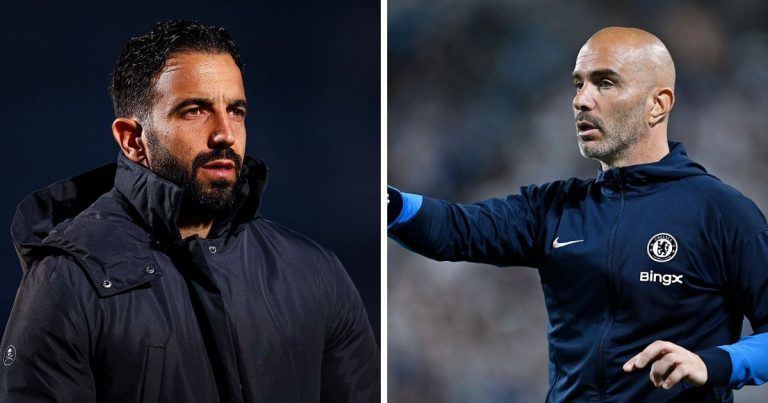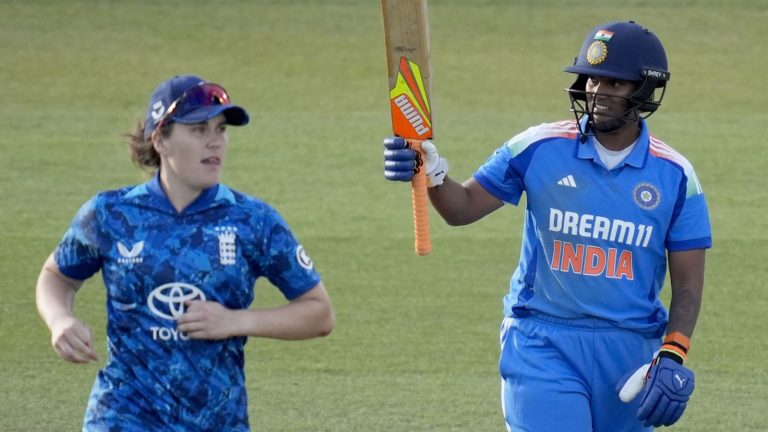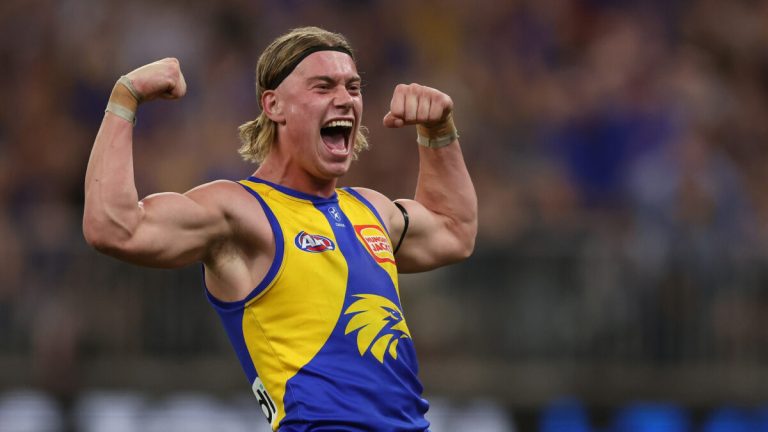The Australian selectors have done Sam Konstas a dirty with the way they have treated the teen prodigy in recent months.
He was all at sea in the three-Test tour of the Caribbean making just 50 runs from six knocks at 8.33.
His struggles alongside opening partner Usman Khawaja making just 123 at 15.37 in his past four Tests add up to the Aussies going into the Ashes for the home summer with serious question marks at the top of the order.
From the moment Konstas dazzled his way to 60 on debut in the Boxing Day Test at the MCG, captain Pat Cummins, coach Andrew McDonald and his fellow selectors should have been doing everything in their power to ensure they supported Konstas in making the huge step up to Test cricket.
But they allowed him to continue batting recklessly in Sydney and he wasted a couple of opportunities in his second Test.
Then he was punted from the team for the two-Test series in Sri Lanka mainly because the Australians wanted to stick with their subcontinent strategy of Travis Head going up to opener.
It made no sense at the time and it makes even less sense now.
They had already qualified for the World Test Championship final and those two matches were a golden opportunity to say to Konstas now is your time to learn some more about Test cricket against a Sri Lankan attack that was modest at best.
Instead he was cast aside and that was a huge blow for a confidence player.
Not only that, when it came time to take on the Proteas in the WTC final they converted an already sadly out of form Marnus Labuschagne to opener in the hope that he could get back among the runs in an unaccustomed position.
Predictably, that gamble backfired as well.

Sam Konstas and Usman Khawaja. (Photo by Santanu Banik/Speed Media/Icon Sportswire via Getty Images)
Time and again in recent years the selectors have taken the conservative option by relying on the past performance of players who are out of form rather than investing in youth or specialist openers.
Konstas is both and it was not a major surprise that he struggled in Barbados, Grenada and Jamaica – the West Indies pace trio of Alzarri, Joseph, Jayden Seales and Shamar Joseph are no mugs and batting conditions were tough for both teams throughout the series.
Cameron Green, with a couple of gritty innings, showed that he is worth sticking with at first drop for the time being but Khawaja, who has been found out against pace bowling over the past 12 months, and Konstas return home with doubts revolving around their place in the team.
With Jofra Archer firing in his comeback Test for England, the opening duo will be ultra important for Australia in shielding Green, Steve Smith and Travis Head from the new ball.
But there has not been this much uncertainty around who Australia’s best two openers are since the mid-1980s when the Windies of old wrought untold carnage on batters’ careers in the back-to-back series of ‘84 and ‘85.
Lyon call proves correct
The selectors managed to leave out an established star in Jamaica and whaddya know, the world didn’t end.
In a rare moment of being adventurous, the selectors actually thought outside the box and decided Lyon was surplus to requirements for the third Test.
The pitch looked like a fast bowler’s paradise and proved to be just that, plus the fact that the match was a day-nighter with the pink ball meant that swing and speed through the air were always going to be more valuable than spin.
But don’t expect the selectors to stray too far from the norm for the Ashes series with the usual three quicks, Lyon, a keeper, six batters including at least one all-rounder in Beau Webster and Green if he is back to bowling to be the line-up in all five Tests.
Boland legend grows
The inclusion of Scott Boland was never going to be a bad decision because the Victorian veteran never plays a bad game.
His ability to continually drag the ball into a batter’s thigh area off a good length is as good as any Australian bowler since Dennis Lillee rewrote the record books in the 1970s and 80s.
Boland’s unassuming nature off the field is in stark contrast to the relentless strike weapon that he is with ball in hand but he is also durable enough to fill the workhorse role when needed as well.
In essence, he’s a captain’s dream and there have been few better hat-trick balls than the one he produced to knock over Jomel Worrican on day three at Sabina Park.
Many a top-order batter would have been castled by the vicious off-cutter as it veered back off the seam through the tailender’s gate to rearrange his stumps.
At 36 there may not be too many more chances at Test level for Boland but he will definitely go down as one of Australia’s most popular late bloomers alongside the likes of Colin Miller, Bob Holland and Bertie Ironmonger.
Starc leaves critics with egg over their face
Mitchell Starc couldn’t have scripted his 100th Test any better in taking 6-9 and breaking the all-time record for the quickest five-wicket haul in history.
His 15-ball blitz was way too good for a brittle West Indies batting unit but it was a kind of high-class swing end seam that has proven too much for even the world’s best batters to handle on occasions.
It was serendipitous that he bowled Seales to finish off the Windies for 27, giving him a cheeky point of the finger as he charged down the wicket to start the celebrations after the local quick had given Starc a far less friendly send-off on day one.
With 400 wickets he is moving into the loftiest of heights in Test cricket’s record books but even despite his magnificent record it’s odd that he still doesn’t get the credit he deserves in some quarters.
Mitchell Johnson made a name for himself with some of the most fearsome and frightening bowling spells you will ever see but when you stack up his career against Starc’s, the younger left-armer has been of more value to Australia over a longer period of time.
Not that it particularly matters whether you think one or the other is better because they have both been great and it’s splitting hairs whether you go with the goatee or the moustache.
The pressure will remain on Starc to step aside in the near future to allow a younger fast bowler to get a chance but he is well within his rights to keep on keeping on for as long as he can, particularly if he can keep performing as he did to earn player of the series honours in the Caribbean.






